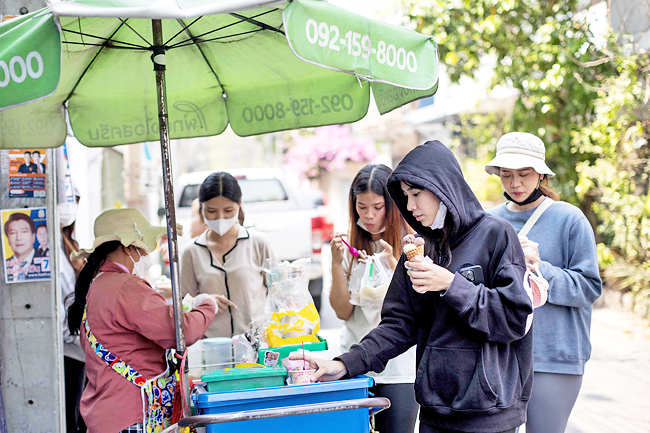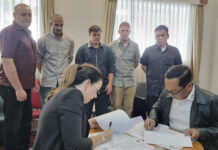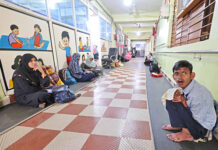BANGKOK (AFP) – Sweltering under a blistering sun, people across South and Southeast Asia have been taking cover beneath any shelter they can find as they pray for cooling rains with record temperatures hitting the region.
Bangladesh saw its highest temperature for almost 60 years in the past week, while in India at least 13 people died from heatstroke along with two in Thailand, according to local media.
“It’s hotter and hotter every year,” said Mikako Nicholls, shielding herself from the blazing rays with an umbrella near Bangkok’s central Lumpini Park on Wednesday.
Scientists say global warming is exacerbating adverse weather, with a recent report from the United Nations’ (UN) Intergovernmental Panel on Climate Change warning that “every increment of global warming will intensify multiple and concurrent hazards”.
Nicholls said Bangkok’s warmer spell was the hottest she had experienced in five years in the capital, and she was trying to stay indoors or in the shade.
Thailand’s Meteorological Department said on Wednesday that temperatures hit a record-equalling 44.6 degrees Celsius in the western province of Tak on April 15, warning that the baking weather would continue into next week.
“It’s possible that this year’s heat might have been exacerbated due to human actions,” said deputy director-general Thanasit Iamananchai.




The kingdom typically endures a spell of hotter weather preceding the rainy season, but the sun has shown an extra intensity this time around.
“This year’s record heat in Thailand, China and South Asia is a clear climate trend and will cause public health challenges for years to come,” said regional lead for climate policy institute Climate Analytics Fahad Saeed.
He warned that soaring temperatures were a result of climate change – and that the impact on vulnerable populations would be dire.
“The extreme heat that we’ve witnessed over the last few days will hit the poor the hardest,” said Saeed, based in Pakistan. “It may even be life threatening for those without access to cooling or adequate shelter.”
A similar story played out in Myanmar where Ko Thet Aung, a taxi driver in the country’s commercial capital Yangon, said the heat was worse than in previous years.
“I can’t drive if the temperature is too hot during the day,” said the 42-year-old.
In Bangladesh hundreds gathered in the capital Dhaka this week to pray for rain after temperatures hit 40.6 degrees Celsius – the highest recorded since the 1960s.
“They held prayers for rain. They also held prayers for easing the temperature and protection from the heatwave,” local police chief Abul Kalam Azad told AFP.
The low-lying country is being dramatically impacted by climate change, enduring devastating flooding and ever-more erratic rainfall.
Neighbouring India saw at least 13 people die from heatstroke at an awards event held outside in the west of the country on Sunday.
It came as the nation’s weather authority said parts of northern and eastern India were experiencing temperatures roughly three to four degrees above normal.
Urmila Das, a housewife in the northwestern city of Guwahati, said her family were suffering under the extreme conditions.
“We are not used to this kind of heat,” the 42-year-old said, adding that she had not sent her children to school as a precaution.
“Normally, we have rains in this part of the region from mid-March but there is no rain this year. It is very difficult.”
Contract labourer Sumu Bezbaruah, who works outside mostly delivering supplies to shops, said the heat was overwhelming.
“It has become very difficult to travel and deliver the goods,” he said.
“I do not remember seeing this kind of weather in the recent past.”


















































